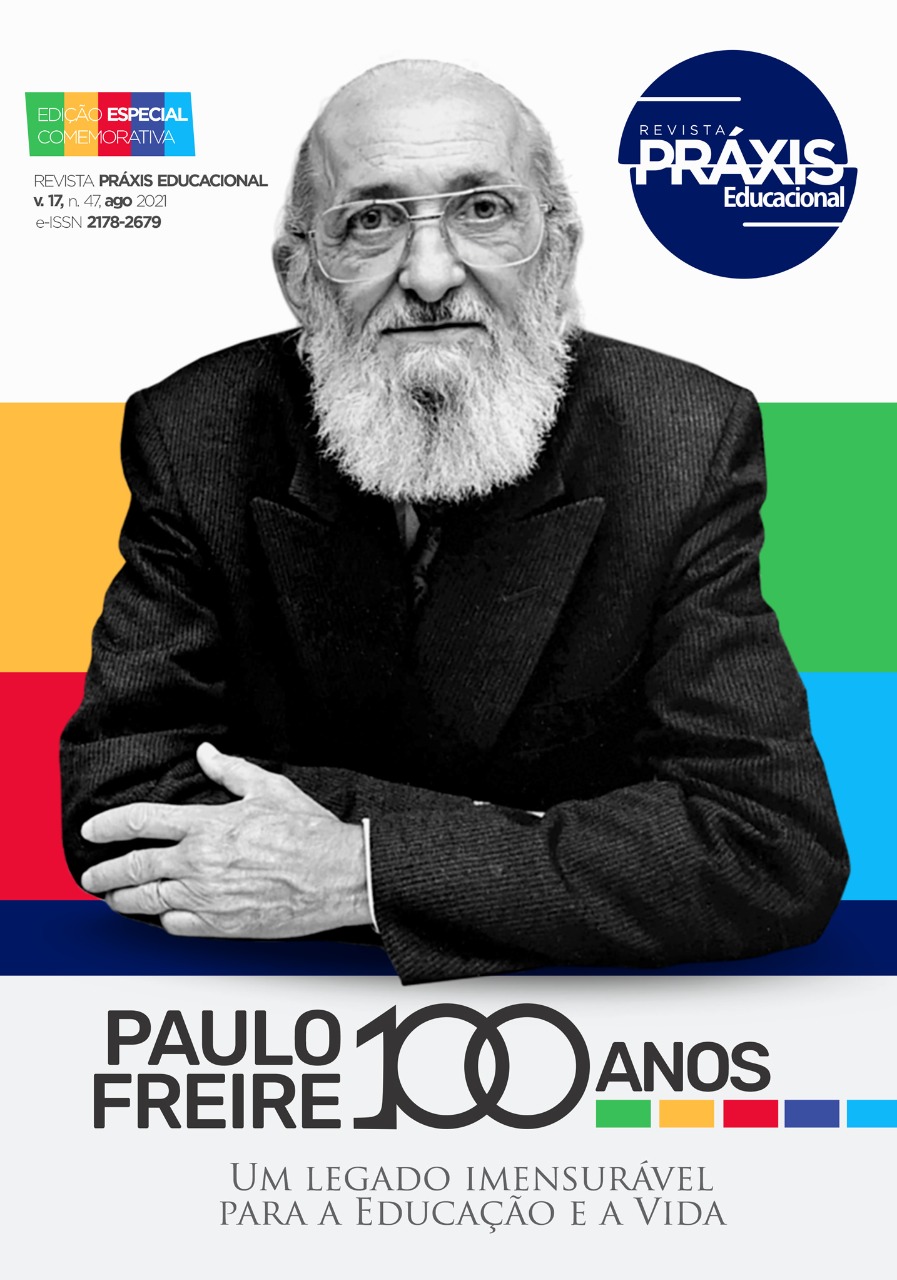Transgression and change of a non-existing curriculum for teaching additional languages to children
DOI:
https://doi.org/10.22481/praxisedu.v17i47.8608Keywords:
Additional Languages, Children, CurriculumAbstract
The main objective of this text is to reflect about the development of guidelines for the teaching of additional languages in the first years of Brazilian elementary education. Currently, consolidated national guidelines for the teaching of other languages exist from the 6th year of elementary school. The main attention in the reflections brought here points to the need to think about curricula, syllabus and guidelines that are based on the principles of linguistic and pedagogical responsibility. To do so, I use theoretical assumptions from Freire's Oppressed Pedagogy to support the fact that the elaboration of any direction in the educational field must guarantee equal opportunities. Thus reducing the possibilities of oppressive relationships that cancel positions, views and actions within schools. I approach the association between language and belonging to the world as a prescription for considering diversity and understanding what is different, attributing to the school curriculum the responsibility to discuss the right of all to learn in contextualized situations.
Downloads
Metrics
References
APPLE, Michael W. Ideologia e Currículo. São Paulo: Brasiliense, 2006.
BAKHTIN/VOLOSHINOV. Marxismo e filosofia da linguagem. Tradução Michel Lahud e Yara Frateschi Vieira. 10. ed. São Paulo: Hucitec, 1929/2006.
BANKS, J.A; BANKS, C.A.M. Handbook of research on multicultural education, New York: Macmillan, 1995.
BRASIL. Lei de diretrizes e bases da educação nacional. Lei nº 9394, de 20 de dezembro de 1996. Estabelece as diretrizes da educação nacional. Brasília, DF, 1996. Disponível em http://www.planalto.gov.br/ccivil_03/leis/L9394.htm. Acesso em: 27 Abr. 2021.
______. Ministério da Educação. Base Nacional Comum Curricular. Brasília, 2018.
CAMERON, L. Teaching English to Young learners. Cambridge: Cambridge University Press, 2001.
ELLIS, G. Developing Intercultural Competence with Children in the English Language Class. Thresholds Disponível em: . Acesso em 28 abr. 2021.
FREIRE, Paulo. A Pedagogia do Oprimido. Rio de Janeiro: Paz e Terra, 1994.
HARGREAVES, A. Momentos de milênio: agendas de investigación educativa para la era postmoderna. Revista de Educación, 1997.
LYNCH, J. 2011. “An Observational Study of Print Literacy in Canadian Preschool classrooms.” Early Childhood Education Journal 38, no 5: 329–38.
MOON, J. Children Learning English. Oxford: Macmillan Heinemann, 2000.
MUSHARRAF, M. N. Islamic Education In Europe - A Comprehensive Analysis (1st Ed.). Australia: Australian Islamic Library. Retrieved from https://archive.org/details/EuropeanEducationPaper, 2015.
NAIDITCH, F. Educação bilíngüe e multiculturalismo: O exemplo americano. Educação, 30(1), 2007.
PENNYCOOK, A. The cultural politics of English as an International language. London: Longman, 1994.
______. Critical Applied Linguistics: a critical Introduction. Mahwah, NJ: Lawrence Erlbaum, 2001.
PHILLIPS, S. Young Learners. Oxford: Oxford University Press, 2003.
ROCHA, C. H Reflexões e Propostas sobre Língua Estrangeira no Ensino Fundamental I: Plurilinguismo, Multiletramentos e Transculturalidade. Campinas: Pontes Editores, 2012.
VAN EK, J. A; TRIM, J.L.M. (Orgs.). Across the Threshold. Oxford: Pergamon, 1984.
Downloads
Published
How to Cite
Issue
Section
License
Copyright (c) 2021 Práxis Educacional

This work is licensed under a Creative Commons Attribution-ShareAlike 4.0 International License.
You are free to:
Share - copy and redistribute the material in any medium or format; Adapt - remix, transform, and build from the material for any purpose, even commercially. This license is acceptable for Free Cultural Works. The licensor cannot revoke these freedoms as long as you follow the terms of the license.
Under the following terms:
Attribution - You must appropriately give credit, provide a link to the license, and indicate if any changes have been made. You may do so in any reasonable way, but not in a way that suggests that you or your use is endorsed by the licensor.
There are no additional restrictions - You cannot apply legal terms or technological measures that legally restrict others to make any use permitted by the license.










